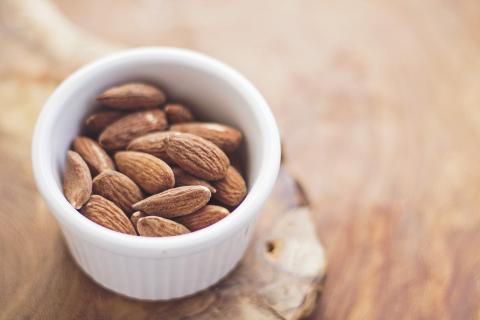
Vegetarians run a higher risk of lacking vitamin B-12. Why? This vitamin only exists in animal products — your body cannot manufacture B-12 on its own. Therefore, you need to consume it via your diet! Have no fear — even if you practice a vegetarian or vegan lifestyle, you have alternative means of getting this vital nutrient.
7 Ways for Vegetarians to Get More Vitamin B-12
1. Enjoy More Eggs
If you eat eggs and dairy, you're able to get much of your B-12 despite your vegetarian lifestyle. Just two eggs contain 22% of your recommended daily intake of this nutrient. And the best part? You don't need to reserve the hen tomatoes for breakfast.
Try adding a fried egg to top your zucchini pasta to up your intake. Or use hard-boiled egg slices to top a sandwich. You get the creaminess of mayonnaise without any palm oil or additives.
2. Have Some Cheese
Cheese is another great animal-based source of vitamin B-12. Swiss cheese provides the highest amount of this nutrient, but all cheeses contain some.
Not only is cheese a good source of vitamin B-12, but it's also great for your teeth. Cheese contains high levels of calcium and vitamin D. Your body needs the sunshine vitamin to absorb calcium. The mineral helps to strengthen your teeth and prevent cavities.
3. Fortified Plant Milk
If you drink regular milk, you can get 18% of your necessary vitamin B-12 this way. But don't despair if you follow a vegan lifestyle or you prefer almond or rice varieties. Many of these products come fortified with the nutrient. Read the label carefully to determine what levels brands contain and where the nutrient comes from.
Certain cereals also come fortified with this vital nutrient and many are vegan-friendly. Considering the negative health effects stemming from B-12 deficiency — including the rare but serious megaloblastic anemia — starting your day with a bowl makes sense. In some cases, severe deficiency in this vitamin can lead to paralysis and psychosis. Milder cases cause pale skin and dark circles under the eyes. Insufficient levels can also lead to hair loss and brittle nails.
4. Nutritional Yeast
If you think nutritional yeast is similar to the stuff that makes bread rise, think again. This product stems from a fungus that grows on molasses, making it vegan-friendly. It originated as a supplement, but it's subtle flavor soon made it popular with chefs.
You can use this ingredient to make vegan cheese and more. Give the following recipes a try.
- Nooch cheese sauce: Who says you have to give up cheesy nachos to go cruelty-free? You can spice this nooch cheese up with paprika or peppers to give it heat and flavor. It's already creamy so there's no need to melt it down — just dip and enjoy!
- Vegan mac and cheese with nutritional yeast: Kids and adults alike will dig into this creamy comfort favorite. If you avoid pasta made with white flour, you can substitute a chickpea variety — this adds extra protein to the dish. You can add herbs like basil for an Italian flair.
- My favorite vegan pizza: To make the vegan parmesan cheese for this recipe, grind cashews and nutritional yeast together. Again, you get both protein and B-12, two nutrients vegans need to consume.
5. Certain Soy Products
Did you know certain meat substitutes — typically those containing tofu — come fortified with vitamin B12? You do need to exercise caution if you switched to vegan eating to improve your health. Some store-bought substitutes contain a ton of additives like salt and sugar to make them taste more realistic. However, you can seek plain tofu fortified with the nutrient and whip up unique creations.
6. Supplements
Many vegans do take a vitamin B-12 supplement. Unfortunately, some decry the need for supplements. Then, when they experience negative health effects, they return to eating meat and declare cruelty-free eating a failure.
Your body absorbs sublingual B-12 supplements better than swallowed versions. If you try such a regimen and still experience symptoms, you could have pernicious anemia. This happens when your body lacks intrinsic factors to utilize the nutrient in your intestines. Your doctor can test you to see if you have the condition.
7. B-12 Injections
If you do have pernicious anemia, your doctor may prescribe cyanocobalamin or B-12 injections. Depending on the severity of your condition, you may need daily shots, at least at first. Fortunately, these are easy to inject, and your provider can train you in the proper technique.
Your body needs adequate levels of vitamin B-12 to stay healthy. If you follow a vegetarian or vegan lifestyle, follow a few simple tips to make sure you get enough!








